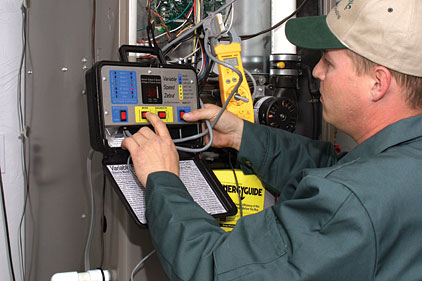HARTFORD, Conn. — Consumers and businesses are expected to purchase thousands of backup generators as a result of recent record power outages in the Northeast, but the Hartford Steam Boiler Inspection and Insurance Company (HSB) warns that improper installation can cause fires, property damage, and serious injuries or deaths due to carbon monoxide poisoning or electrocution.
The equipment specialists at HSB, part of Munich Re, advise users to follow proper precautions when installing and using backup generators. Generator users should fully read and understand the manufacturer’s instructions and consult their contractor as necessary. (A number of HVAC and mechanical contractors offer generators and electrical services.)
Do not connect the generator outlets directly into a wall outlet. This is known as backfeeding and it can cause an electrocution risk to utility employees working to restore power and others served by the same utility transformer.
Connecting the Generator. There are two safe methods to connect a generator: users should have their contractor connect the generator with a transfer switch, or they should connect essential appliances such as a furnace directly into the outlets mounted on the generator using properly rated extension cords. Improperly installed generators can feed electricity into power lines outside a house or business and cause an electrocution risk.
Location. Never use a generator indoors or in an area where carbon monoxide gas could build-up. This includes basements, attached garages, crawl spaces, or locations adjacent to open windows and doors. Check that the exhaust is directed away from the home or business. Do not use a generator in the rain or wet conditions unless approved by the manufacturer. Keep children and pets away from electrical generators at all times and always stay clear of downed power lines.
Grounding. You must properly ground a generator. Follow the manufacturer’s recommendations for proper grounding requirements.
Don’t Overload Generators. Most generators do not have the capacity to power everything in a house. Prioritize needs and use the generator to power only essential equipment. Overloading could cause the generator to fail and damage sensitive electrical equipment.
Power Cords. When using extension cords to power appliances, only use heavy-duty, outdoor rated power cords with an adequate wire gauge (rating). Overloading cords can cause fires and/or equipment damage. The cords should be free of damage and have three prongs.
Fuel. Never store fuel for a generator in the home or near a fuel burning appliance, such as a natural gas water heater. Before refueling a generator, turn it off and let it cool down. Gasoline spilled on a hot engine could ignite and cause damage.
Hartford Steam Boiler provides a range of specialty insurance coverages for businesses and consumers. One of the world’s leading equipment breakdown insurers, HSB helps clients reduce risk through a combination of specialty coverages, engineering-based risk management strategies, and loss reduction services. For more information, visit www.hsb.com.
Publication date: 12/19/2011


Report Abusive Comment